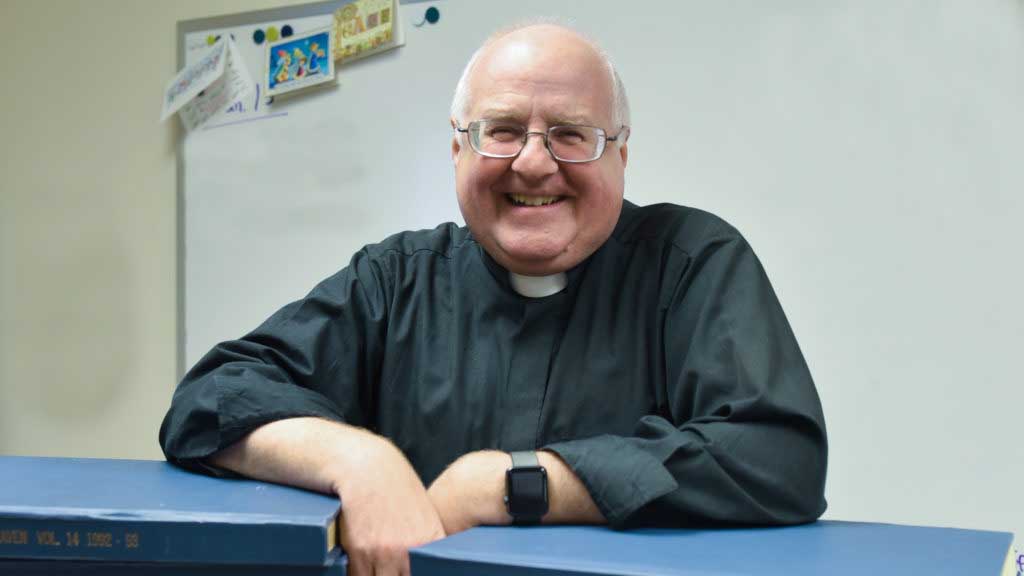
by Father Mark Goldasich
Surprisingly, someone is calling Christians to actively participate in a revolution. And that someone is none other than Pope Francis himself!
It’s not a new call, but one that the pope has mentioned often since his election in 2013. And though he’s been powerfully leading this charge, is anyone following? Unlike revolutions based on violence and intimidation, though, this is a revolution of tenderness, modeled for us by the lives of Jesus and Mary.
Pope Francis elaborated on this theme in his first encyclical “The Joy of the Gospel” (“Evangelii Gaudium”) where he wrote: “The Son of God, by becoming flesh, summoned us to the revolution of tenderness” (88). Jesus must have seen this first in his mother, as the pope noted: “Whenever we look to Mary, we come to believe once again in the revolutionary nature of love and tenderness. In her, we see that humility and tenderness are not virtues of the weak, but of the strong who need not treat others poorly in order to feel important themselves” (288).
The life of Jesus was a testament to this. While others tended to shy away from or isolate people with leprosy, those possessed by demons or folks considered public sinners, Jesus embraced them with tenderness.
I’ve been thinking a lot about tenderness, especially after reading Tom Racunas’ column on the next page. He reminds us that May is Mental Health Awareness Month and gives practical suggestions on how to educate ourselves and make good use of this time.
The pandemic has wreaked havoc on everyone’s mental health to varying degrees. A first place to heal some of its negative effects is to do a self-inventory and handle ourselves with some tenderness.
We should start, of course, with prayer, Scripture and quiet reflection. Additionally, these simple and practical suggestions from Mental Health America can further bolster our spirits:
• Make a list of your successes in a journal.
• Send a thank-you note to someone.
• Spend some time with a pet.
• Get off the grid. Get yourself a break from your cellphone, social media and the news.
• Work your strengths; do something you’re good at.
• Take time to laugh.
• Yawn: Studies say it cools the brain and improves alertness.
Most importantly, though, we best practice self-care when we extend tenderness to others. This story shows how important that is:
A small boy was tucked into bed one evening while his parents held a party. After turning on the nightlight, the mom kissed her son and told him not to be afraid because Jesus was there with him. She then closed the door and rejoined the guests downstairs.
After 10 minutes or so, the mom was surprised to see her son peeking through the upstairs bannister. She scooped him up and put him back into bed. The little boy said that he got up because he was scared.
The mom replied, “Sweetheart, don’t you remember that I said you don’t need to be afraid because Jesus is here with you?”
“I know that Jesus is here,” said the little guy, “but right now, I want somebody around with skin on!”
Don’t we all? If there’s one lesson the pandemic has taught us, it’s this: As good as it was to be able to connect with others via phone, email or Zoom, it could never replace actually being in the presence of one another, with “skin on.”
That’s how tenderness is most effectively shown.
Let’s not leave Pope Francis out there on his own. It’s time for us to bear arms — not those that shoot bullets, but arms that extend in welcome to others; arms that soothe the hurting; arms that work for justice for the oppressed; and arms that lift others up in encouragement and hope.
Onward, Christian soldiers!

